Digital accessibility
Digital accessibility means that everyone can use the possibilities offered by the internet, computers and smartphones. This means that websites and applications, but also things like PDFs, forms and videos must be suitable for everyone. So also for people with disabilities.
Content
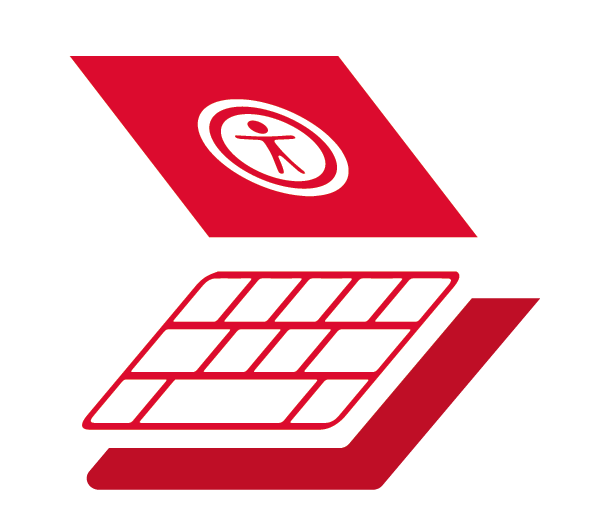
Digital accessibility at the UG
As the University of Groningen, we value inclusion highly. We find it very important that students can study to a large extent barrier-free. We also want to remove as many digital barriers as possible for staff and visitors. Accessibility is a precondition for an inclusive organisation and for full participation in research and education or its facilitation. Standards, the WCAG guidelines (website in Dutch only), have been developed for making websites and applications digitally accessible.
Complying with legislation
Not only the UG, but also the government considers digital accessibility very important. To ensure the use of digital possibility, various legislation is in place. For example, we have to comply with the UN Convention on the Rights of Persons with Disabilities, the Equal Treatment of Disabled and Chronically Ill People Act, the Higher Education and Scientific Research Act and the Decree on Digital Accessibility for the Government.
What is the UG doing about digital accessibility?
We work towards good digital accessibility by including various measures in our processes:
-
Research: independent experts test (parts of) our websites for accessibility. Found problems we and/or the supplier try to solve
-
Design and building: accessibility is considered as much as possible at an early stage in the design and (re)building of our websites
-
Procurement: accessibility is an integral part of the requirements for tender procedures.
-
Knowledge: employees have knowledge about accessibility and apply it where necessary.
Digital accessibility project
The Digital Accessibility Project is finished in 2024. The ambition is to make the main websites of the UG digitally accessible for students, employees and visitors so that they can study and work without barriers. To this end, audits of digital accessibility are being carried out, for example on the e-learning environment Brightspace and the EDU Support website (the UG-wide online support desk for questions about Brightspace and other educational applications). Examples of issues detected and resolved at Brightspace include: the purposes of links have been described, and where necessary, color contrast has been increased between foreground and background.
On the EDU Support website text has been added to page titles that now describe page content more clearly, text alternatives have been added to images and icons, and color contrast between foreground and background has been increased.
The EDU Support website contents more information on what digital accessibility is. Here you will also find tips and advice for creating accessible texts and educational materials. This is useful not only for communications staff but actually for anyone who writes texts. Furthermore, you will also find an explanation of the use of the Brightspace's built-in accessibility checker. When you present educational materials in your course, it is important that these materials are accessible to all students. Brightspace's accessibility checker can help you do that.
Within the project, a guide has been created with general guidelines for digital accessibility.
Information Point
Please feel free to share your insights, tips, suggestions and areas of improvement for accessibility at the UG.
Accessibility statements
The University of Groningen wants its main websites to be digitally accessible for students, staff and visitors so they can study and work without barriers.
We publish accessibility declarations for the most important websites. This overview is continuously updated and supplemented.
Brightspace
Brightspace
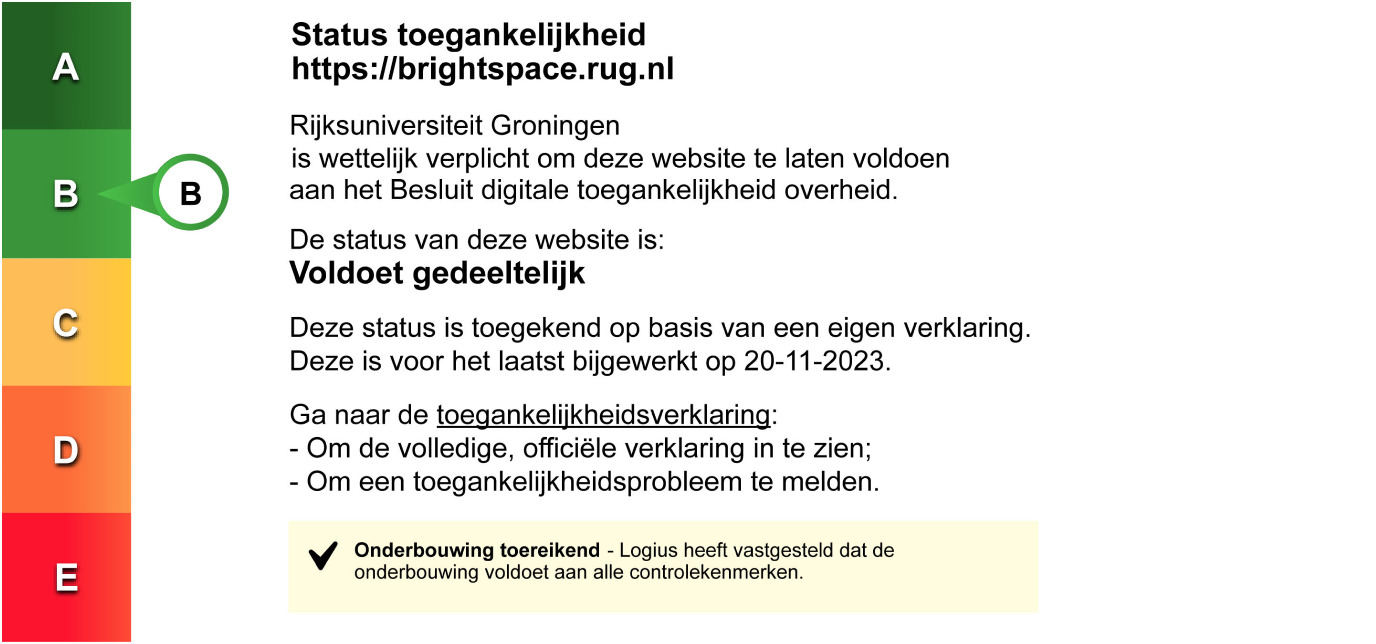
Corporate website
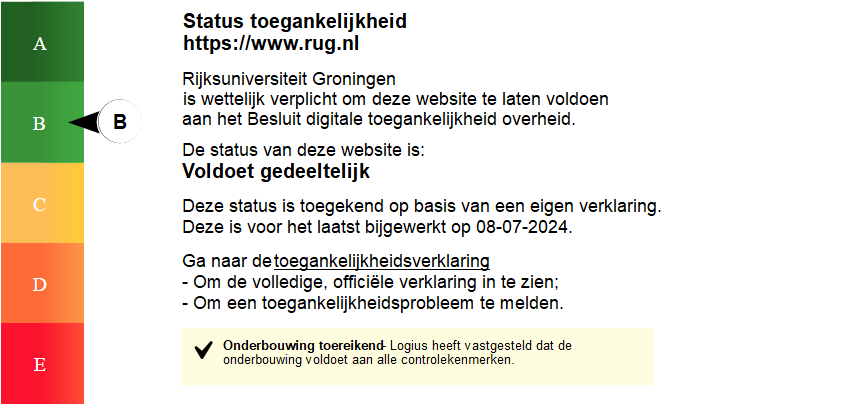
EDU Support website
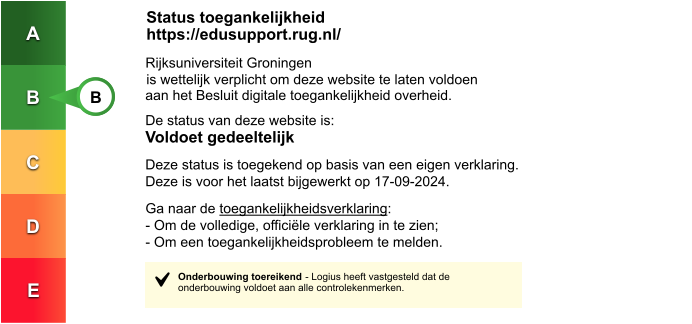
ProgressPortaal
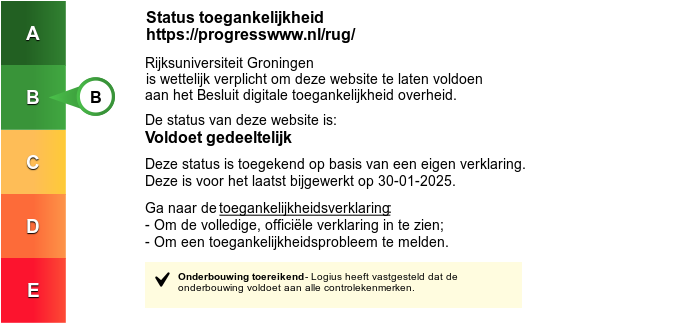
Campus Print Portal
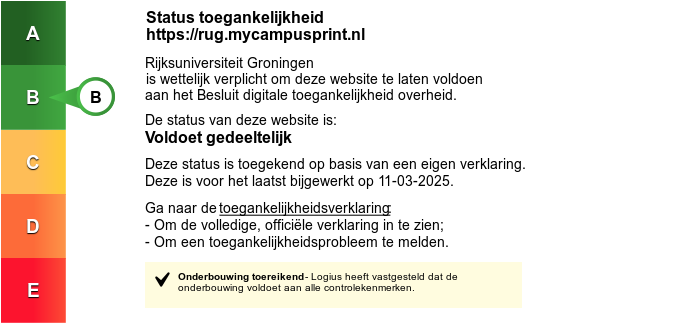
Campus Print App (Android)
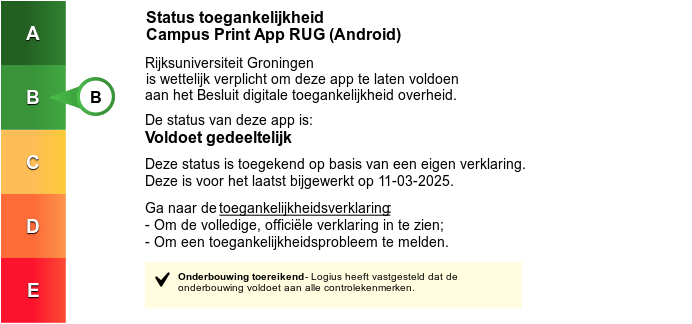
Campus Print App (iOS)
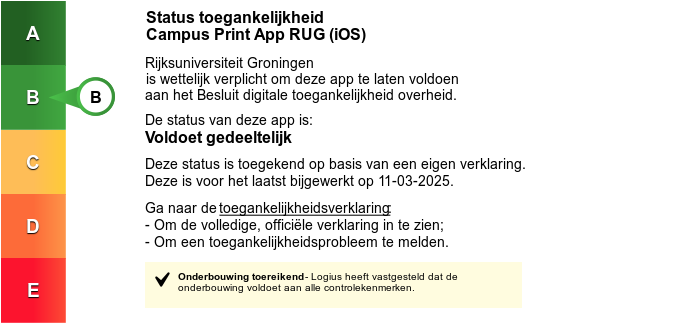
Blue Evaluations
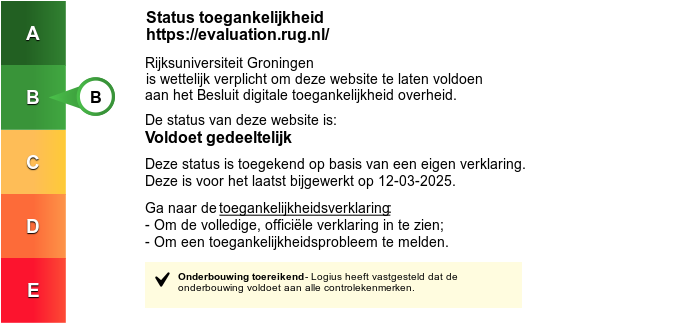
HR Onboardingsportal
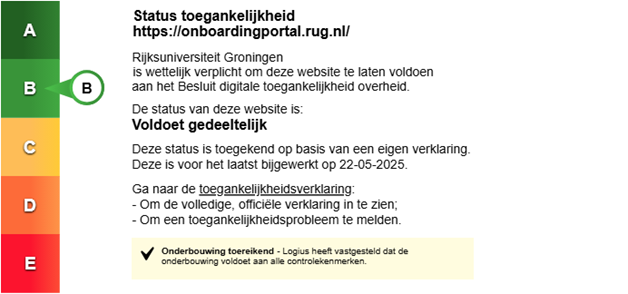
Account Activatie & Multi-Factor Authentication (MFA) Portal

Status accessibility Account Activation & Multi-Factor Authentication (MFA) Portal. Click on the link for for the complete accessibility label.
My University Dashboard
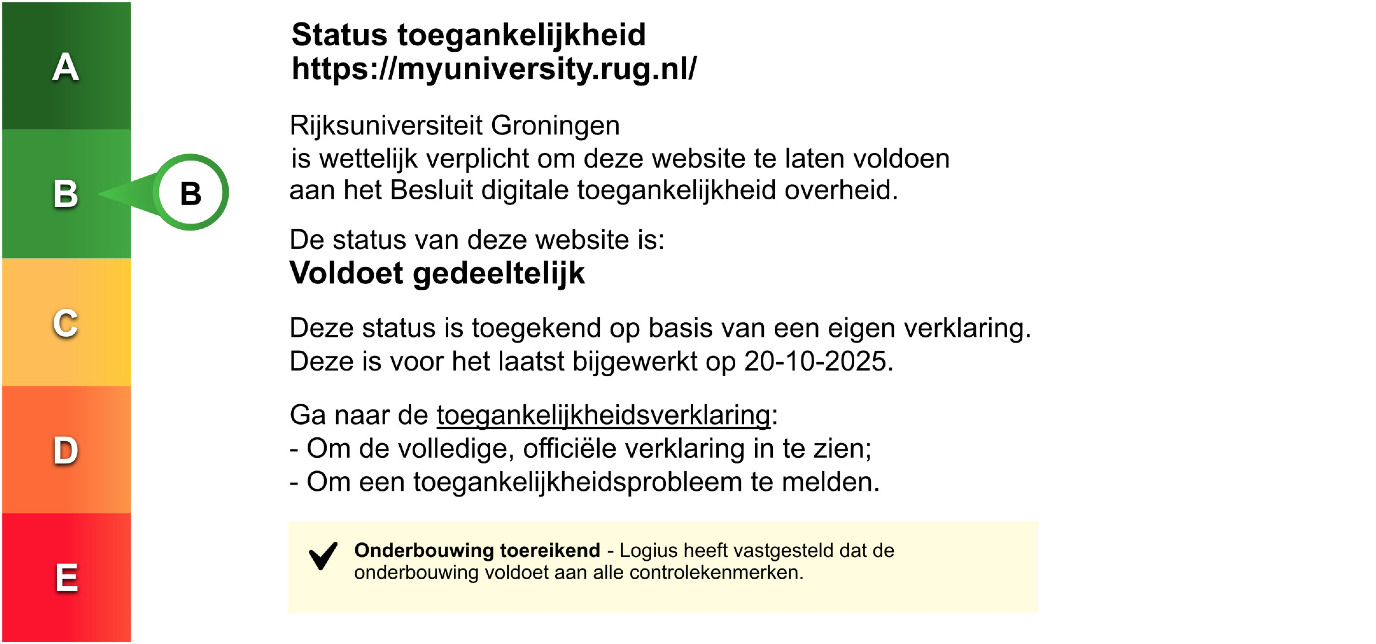
Status accessibility My University Dashboard. Click on the link for for the complete accessibility label.
Kaltura video platform
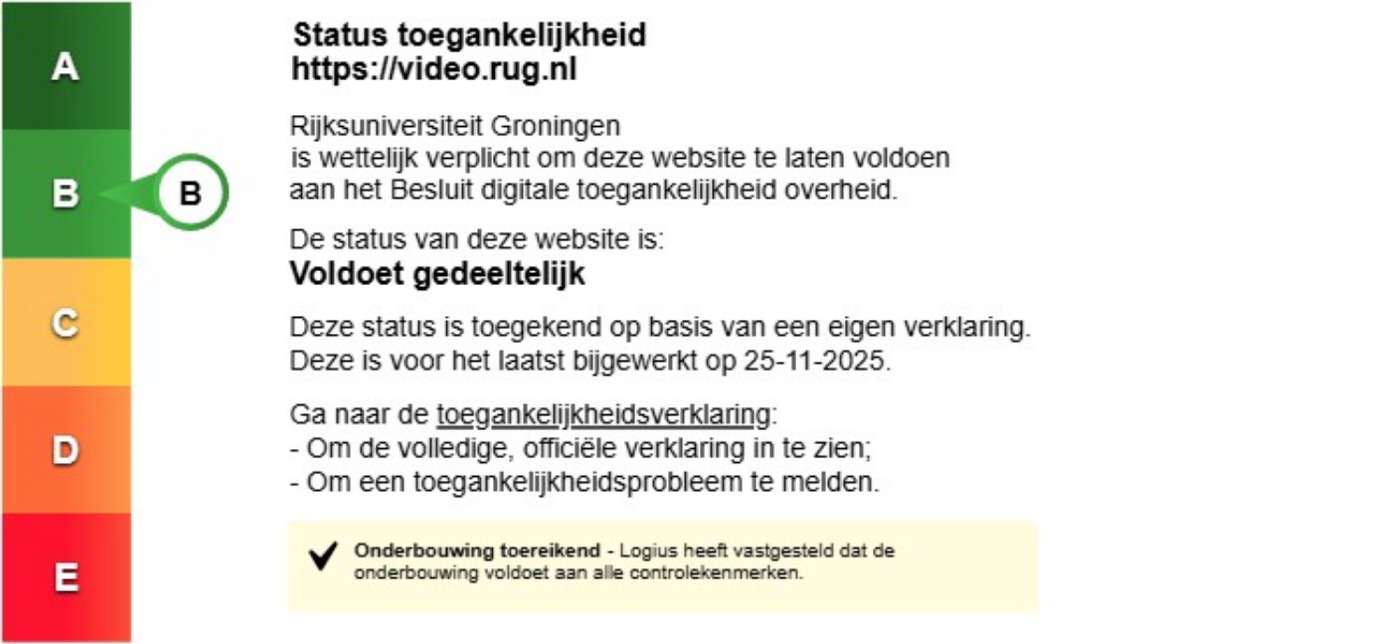
Status accessibility Kaltura video platform. Click on the link for for the complete accessibility label.Research report August 2025
Ocasys Course Catalog
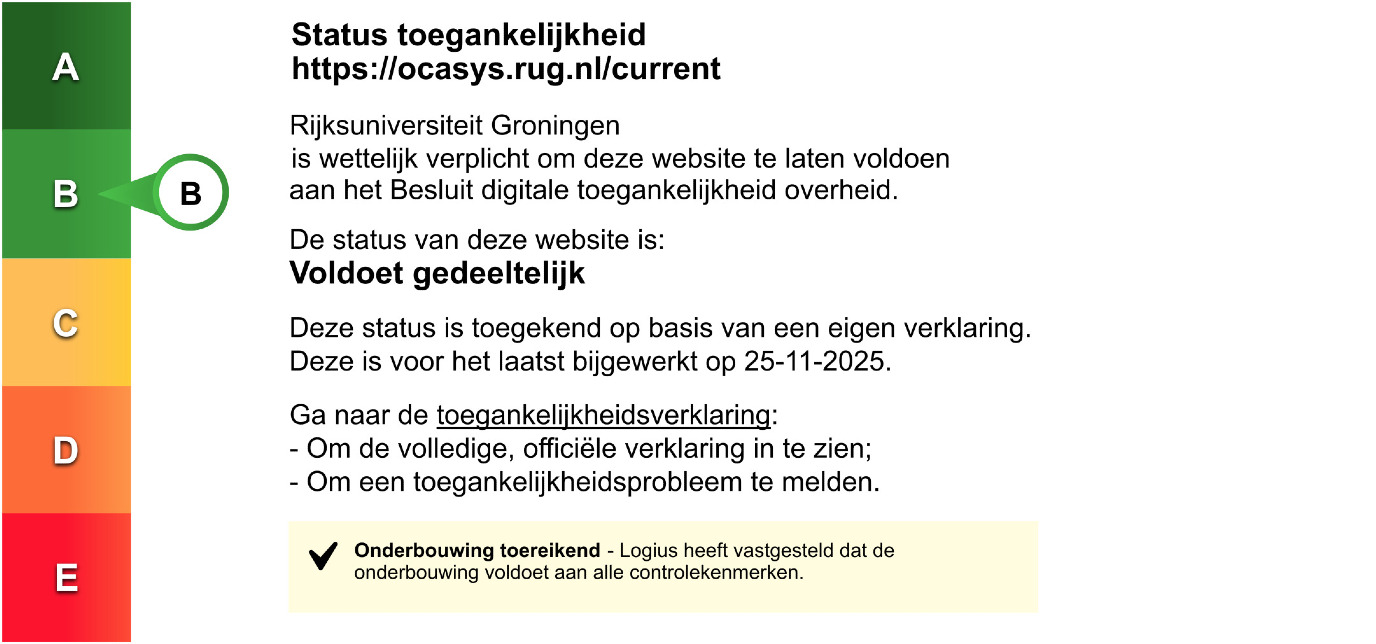
Status accessibility Ocasys Course Catalog. Click on the link for for the complete accessibility label.
